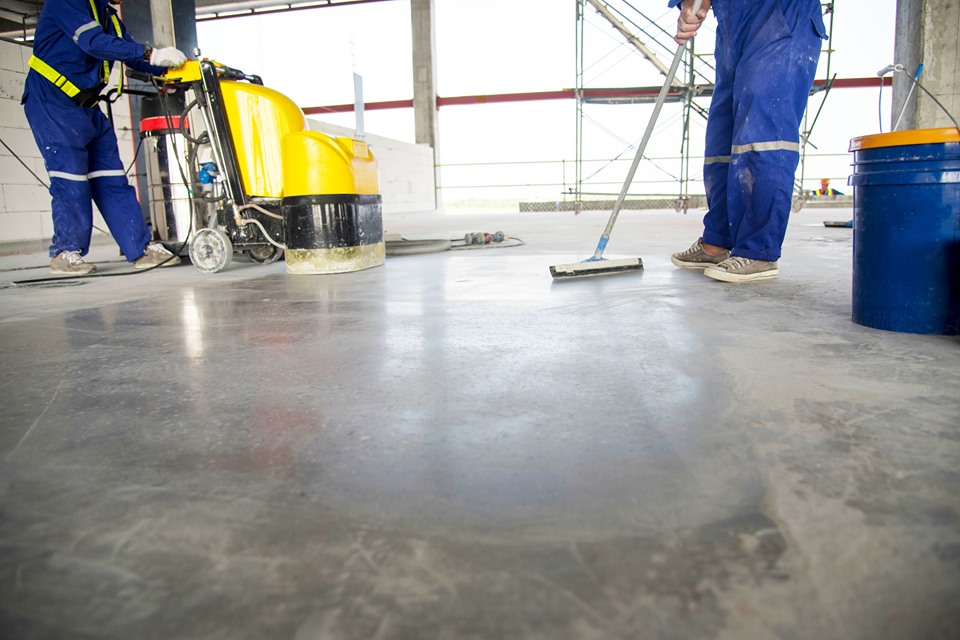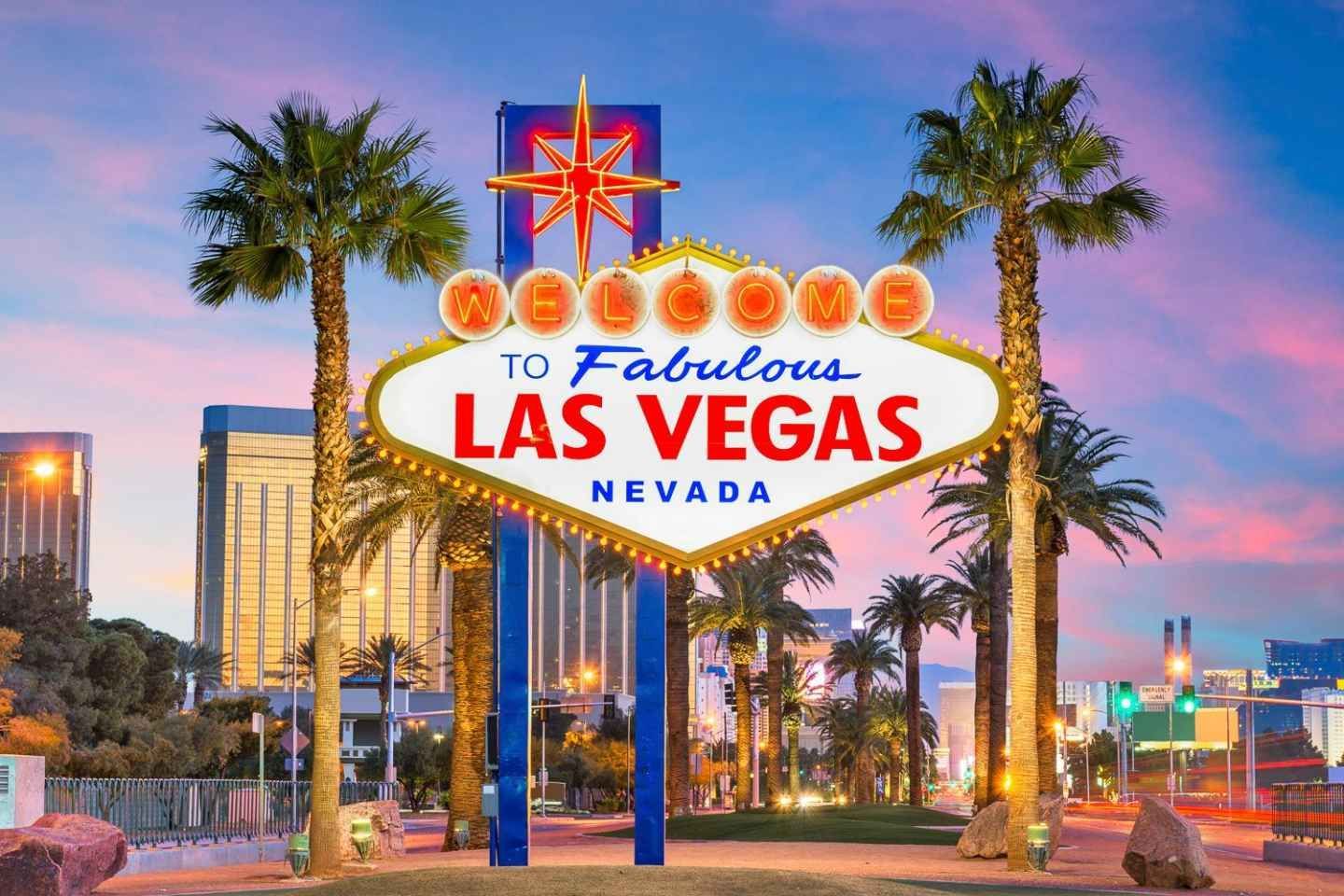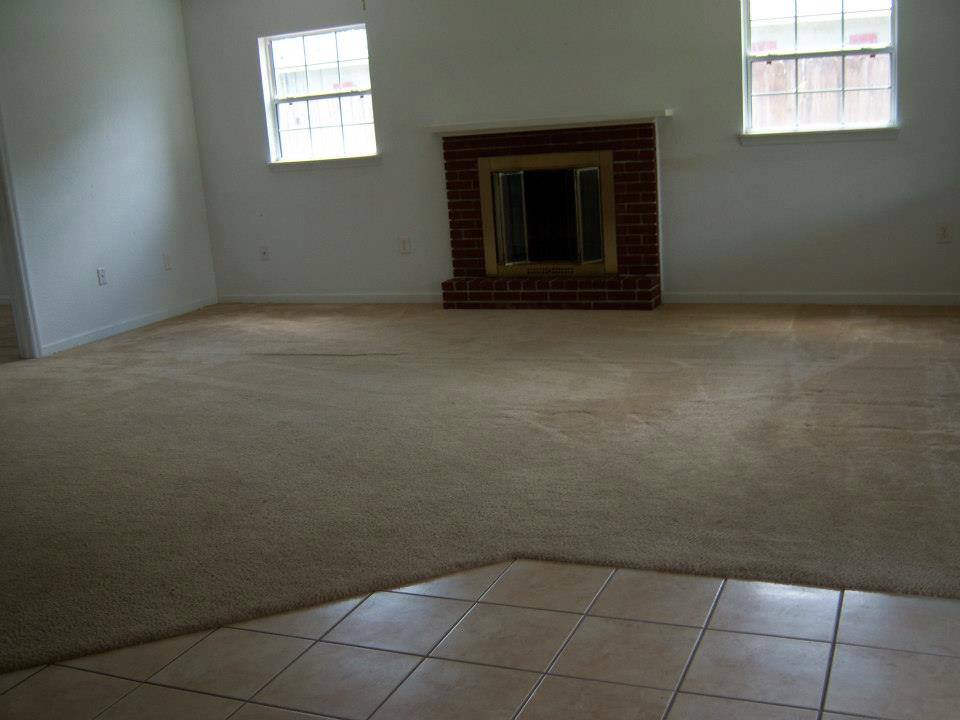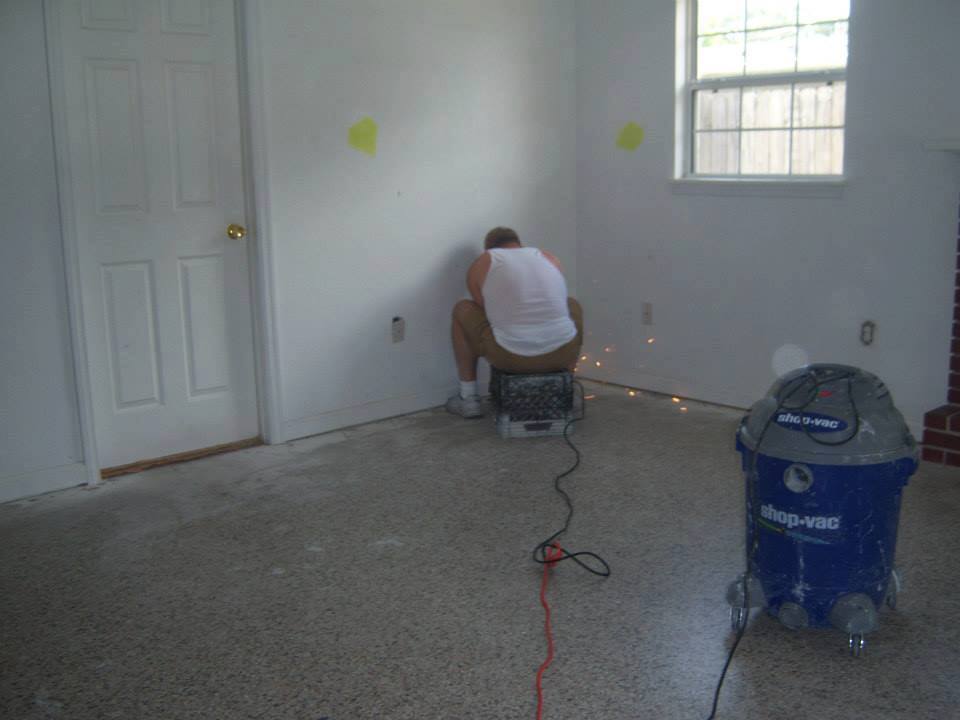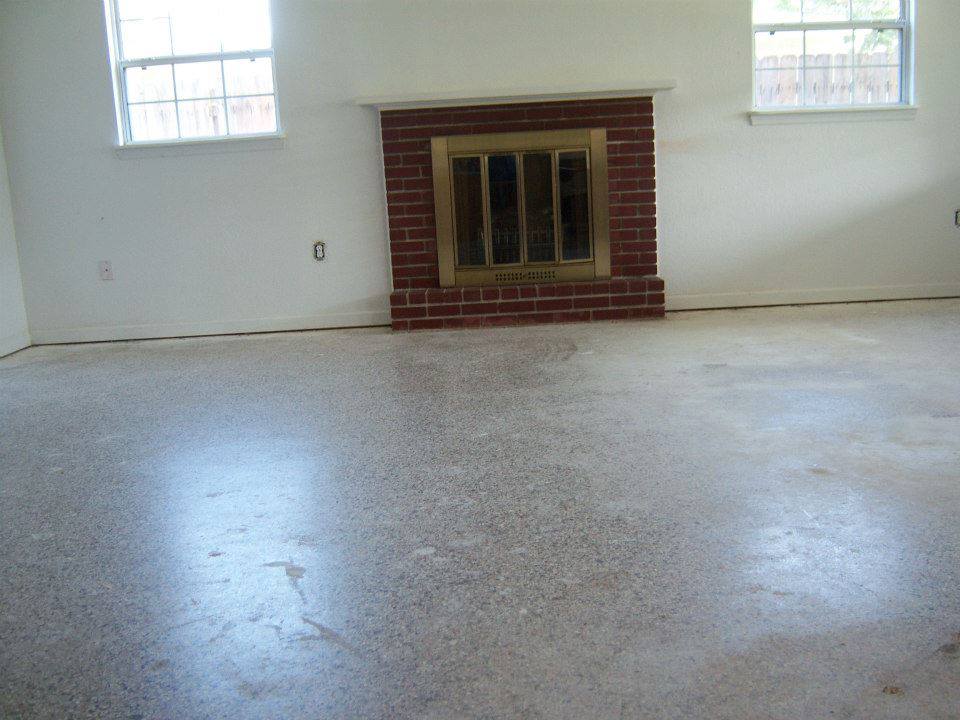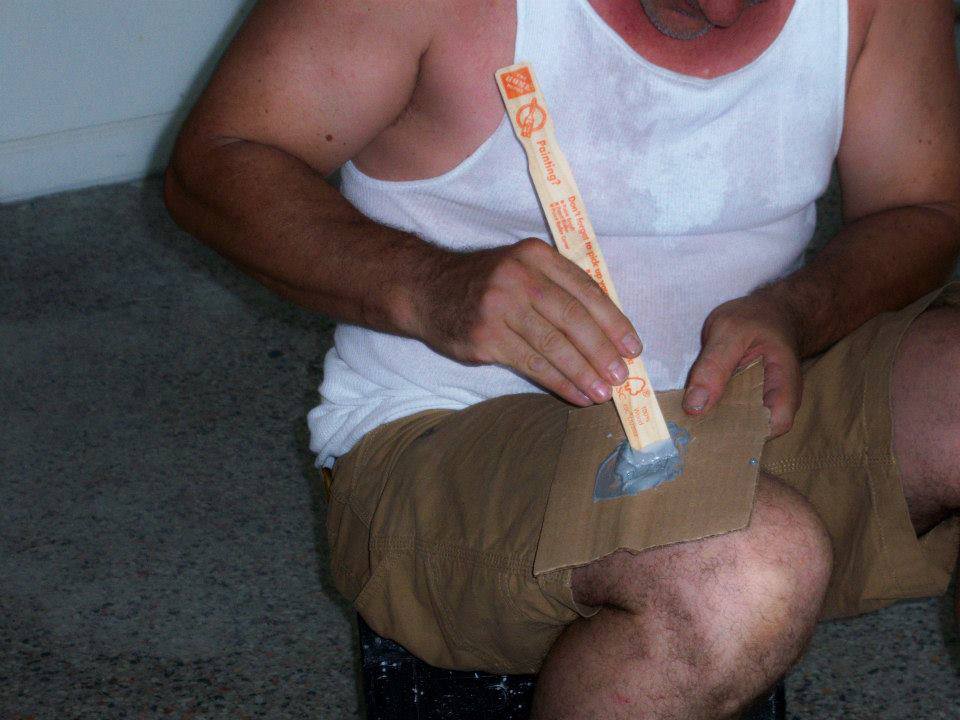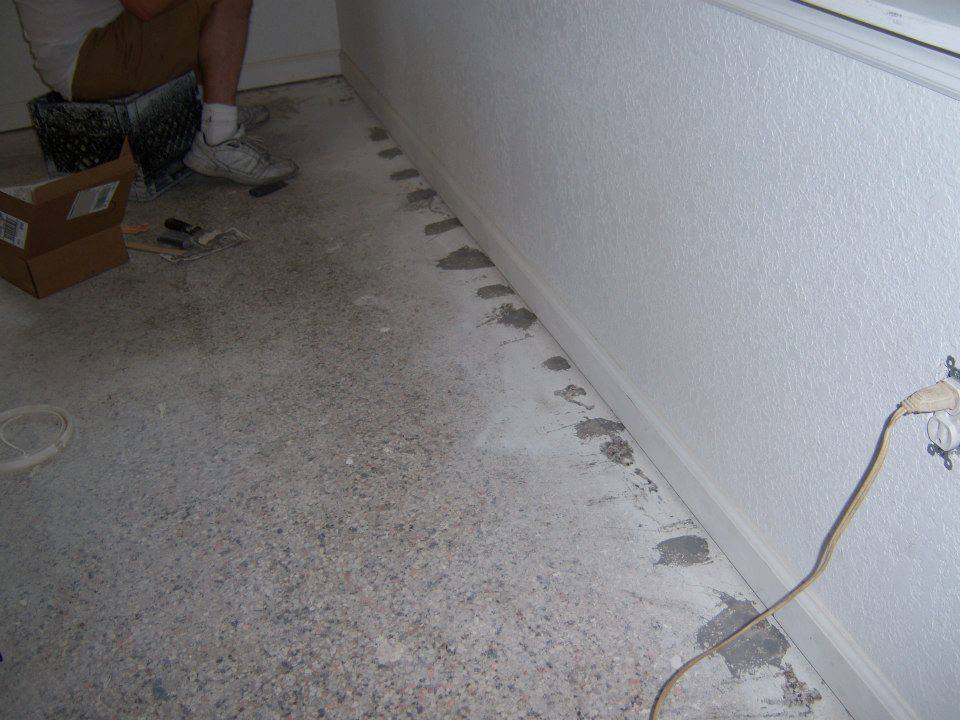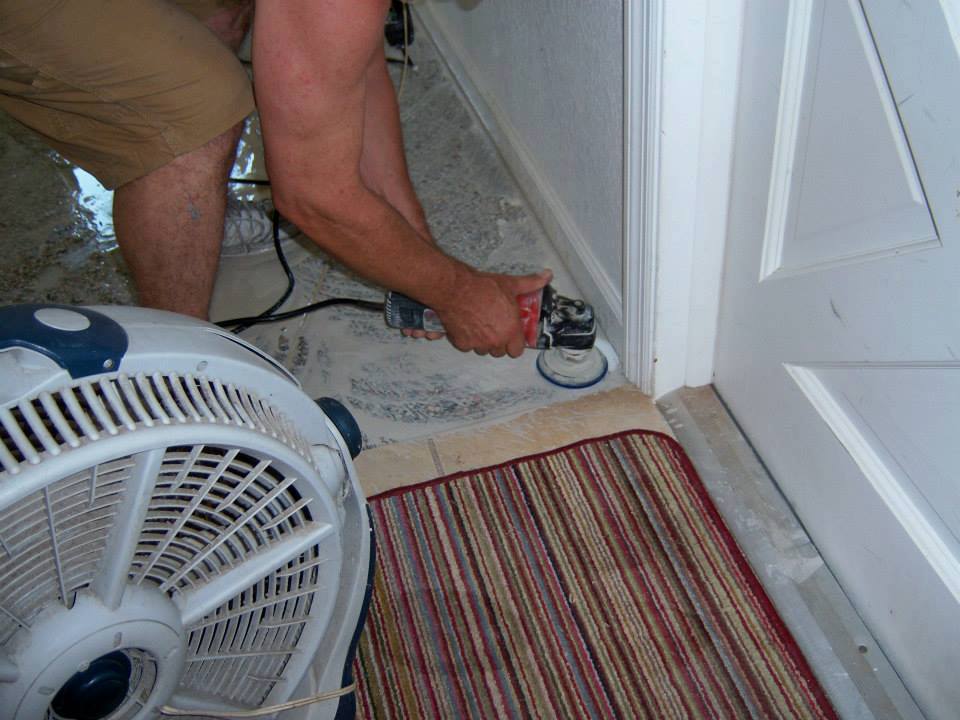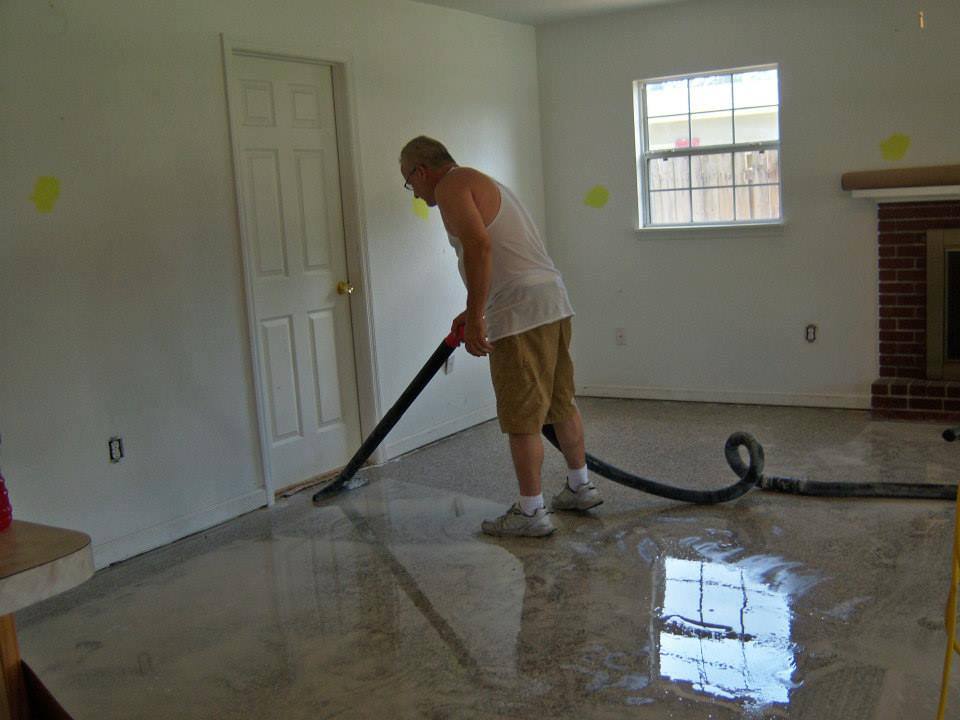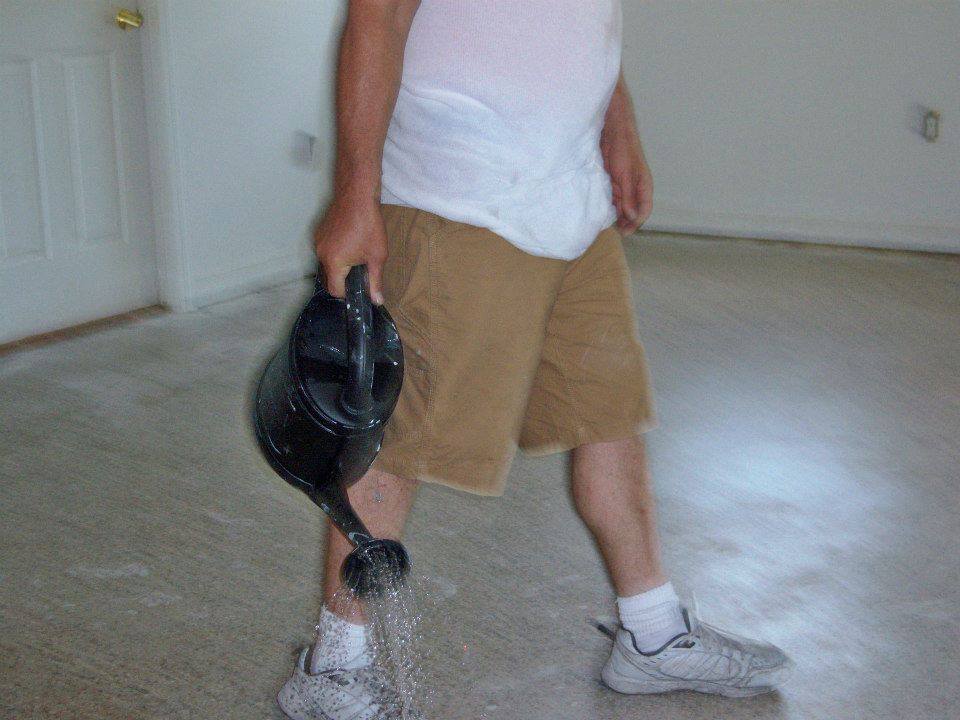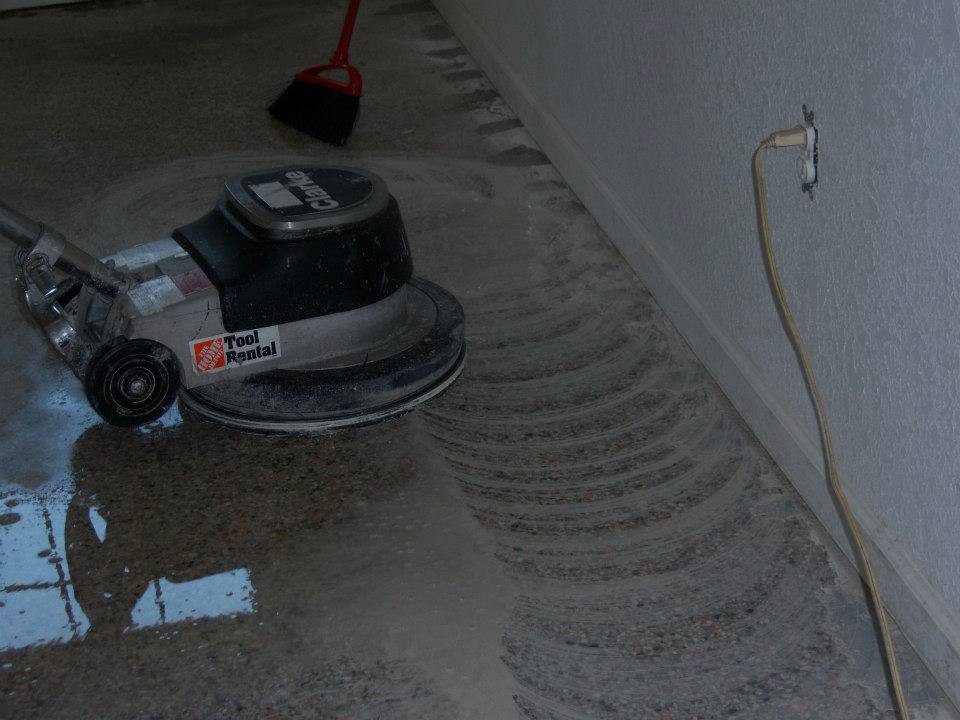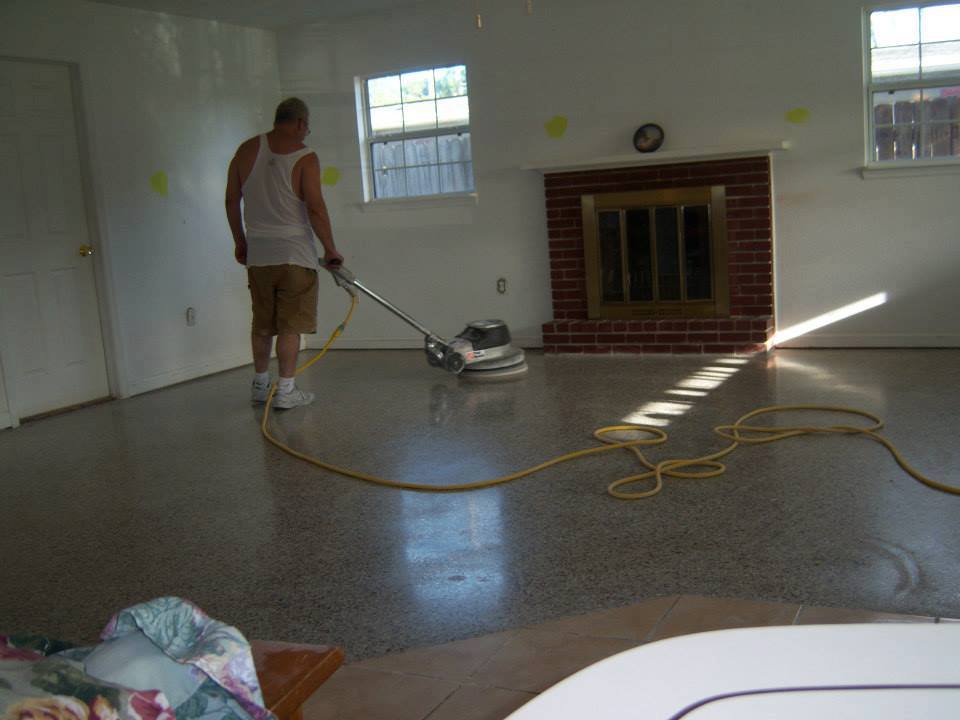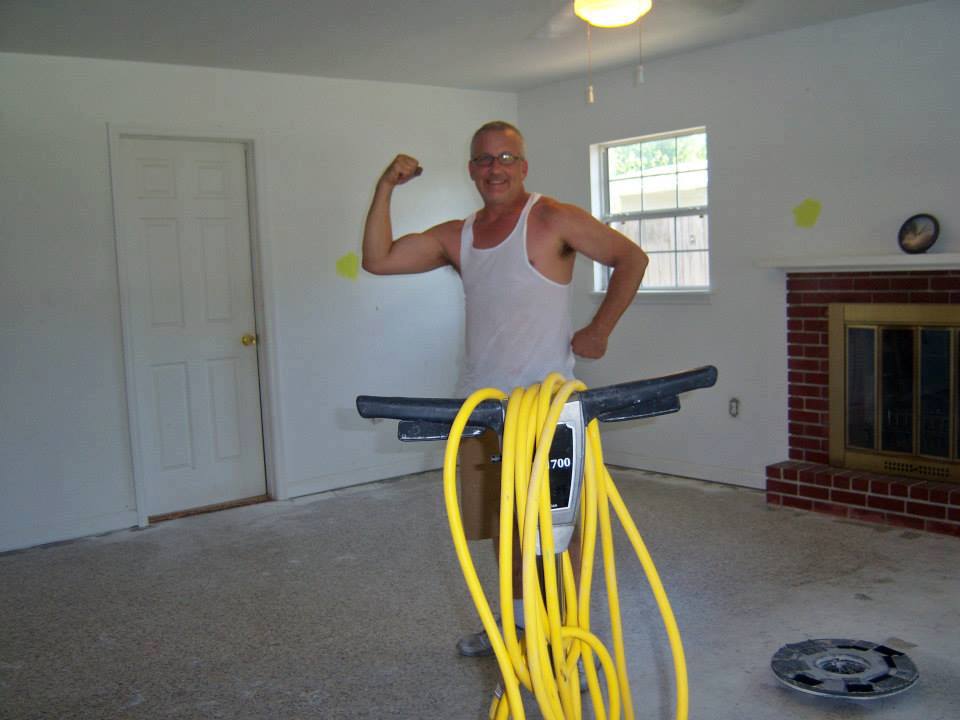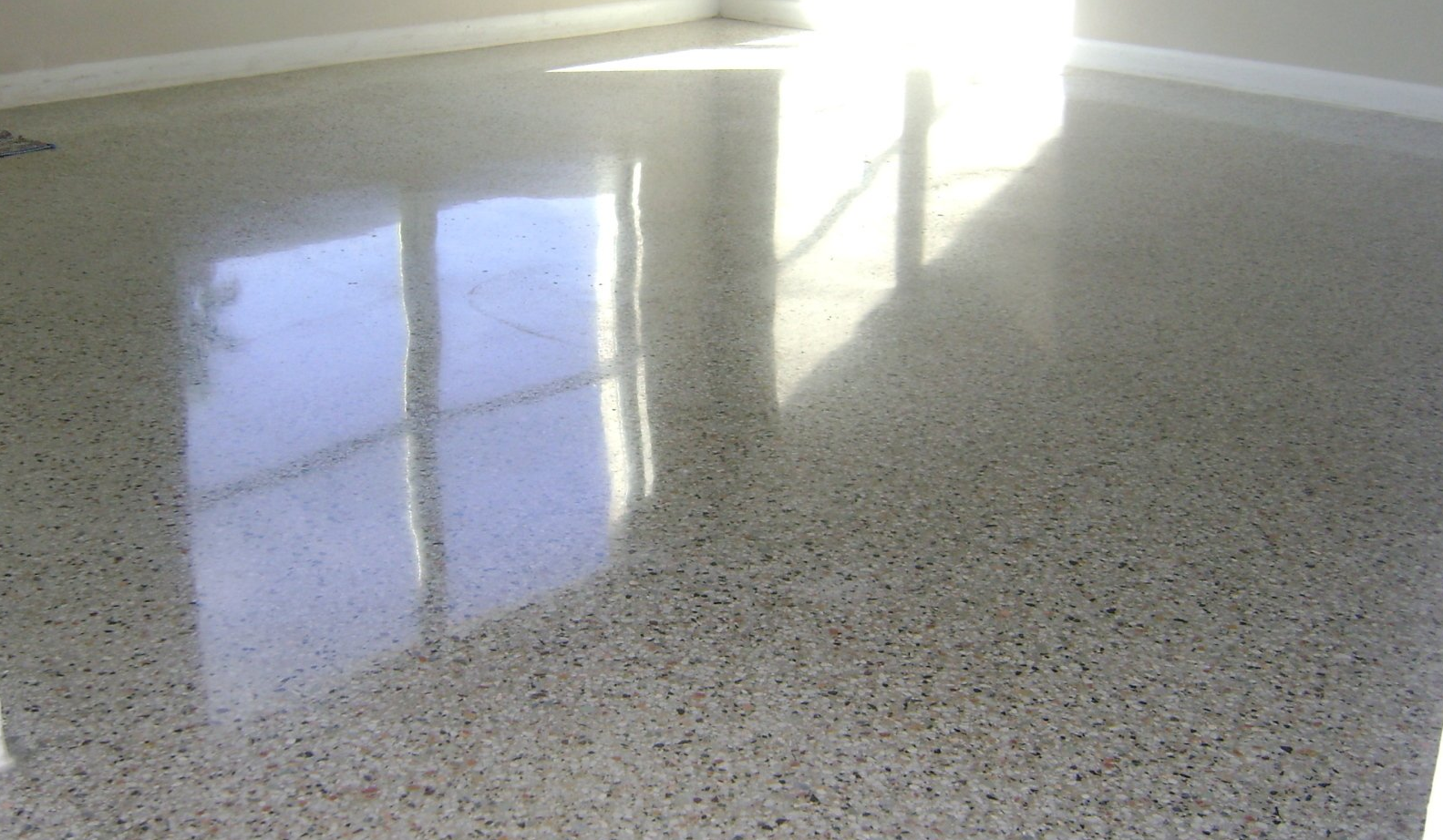Does my Garage Floor Need an Epoxy Moisture Vapor Barrier? | Xtreme Polishing Systems
Typically, an epoxy moisture vapor barrier is unnecessary. Properly constructed garages that are at or above grade will have a stone base under the concrete slab. So, moisture vapor emission rates (MVER) will be very low.
Garages that are below grade or located in geography that has high water tables may have a high MVER, but often the issues can be mitigated by leaving the control joints (saw cuts) open.
Our garage experts can assist you with this determination. Beware – there are companies who will include moisture vapor treatments as part of their standard offering which is usually unnecessary & greatly increases the price.
If you intend to build a new garage, you will need to understand the basics of construction materials and techniques.
True enough, a professional contractor will do the job. However, it is your money. You would not want to spend a sizable amount for nothing. Keeping this in mind, installing a vapor barrier on the garage floor will save you time and money in the long run.
The Wet Garage Problem
Water gets on a garage floor from both below and above.
The mechanism known as capillary action allows groundwater to travel through the concrete floor. Condensation is another occurrence that can cause water to accumulate on the garage concrete floor.
Capillary Action
The two forces that cause capillary action , often known as capillarity or simply wicking, are cohesive and adhesive.
The first reason your garage floor is moist is that groundwater is wicking up through the porous concrete, similar to liquid wax on a candlewick.
In a capillary — a narrow tube — both intermolecular forces can overcome the opposing gravitational pull. Water will ascend until the downward gravity force balances the upward capillary activity.
Condensation
The water cycle involves two major processes: Evaporation and Condensation, among other intricate processes.
Whereas evaporation changes its state from liquid to a gas (water vapor), condensation is the reverse. Condensation is water changing back from a gas (water vapor) to a liquid state.
Condensation is a natural phenomenon that causes mist, dew drops, and rain. When it is particularly cold outside, the water can even turn into snow or ice. Much like these things, the second reason your garage floor may be wet is humid air releasing its moisture.
Too much moisture in concrete is now an issue since it can induce pH changes in the concrete, which can cause adhesives to fail. Here is how it goes down.
As moisture percolates to a concrete slab’s surface, soluble alkalies accompany it, raising the surface pH above that of flooring adhesives. This reaction causes the bonds to fail, resulting in flooring defects such as swelling, bulging, and cupping.
For whatever reason, a vapor barrier may be essential on all garage surfaces, including the garage floor, walls, and roof. Moisture from the wet ground will eventually penetrate the porous concrete if the garage floor does not have a vapor barrier.
The Epoxy Moisture Vapor Barrier
Any material that stops moisture from entering a concrete slab is known as an epoxy moisture vapor barrier. Because fresh concrete is poured wet, vapor barriers are employed to keep it from drying out. To avoid flooring issues, it must dry and then stay dry.
You know the kind of damage that too much moisture could create if you have ever had a problem with a basement floor or any concrete floor. Water can get into concrete in several ways; it is present in the initial concrete mix.
However, there is only one route for moisture to exit concrete, and that is through its surface.
Thus, you will have issues if you have a concrete floor that is constantly in contact with a source of moisture. This issue is why a vapor barrier beneath the concrete is so important. Vapor barriers are a type of barrier that prevents water from penetrating the concrete.
Why Go for an Epoxy Garage Floor?
Here are a few reasons why you will not be sorry you choose epoxy for your garage floor:
- Aesthetics : The bright colors and reflective surface assist in lightening the garage and improve its overall appeal.
- Fix Defects : If there are flaws in the cement, garage floor epoxy is an excellent way to conceal them. Before applying the final coat of epoxy, cracks up to half an inch can be covered with an epoxy mortar.
- Durability : Epoxy is a long-lasting material. Even heavily used garages look fantastic years after the epoxy has gotten applied. These garage flooring options are resistant to chemicals, chipping, and damage, as well as wear and tear.
- Minimize Dust : Over time, bare cement flooring will shed, causing a condition known as “dusting.” Dust gets kicked up by a regular car and foot traffic in the garage, which settles on tool benches, cars, and anything else. Because epoxy is a topical sealer, it provides anti-dusting properties, making it easier to keep a clean garage floor.
- Moisture Resistant : It is beneficial to apply a garage epoxy coating to reduce the damage caused by moisture on the garage floor. You will not have to worry about water dripping off the car when it rains.
- Property Value : Every home improvement project, including garage epoxy flooring , raises the value of your home. Potential buyers value garage flooring that is gleaming and long-lasting, and they are ready to spend a little more for a home with this quality.
- Protection : By applying a garage epoxy floor coating , you add a layer of protection to the concrete, reducing the risk of damage. The epoxy, for example, minimizes the chance of oil stains on the floor, making it simple to clean up after working on your car in the garage.
- Safety : Garage floor epoxy increases your and your family’s safety. This coating reduces slippage, is fire resistant, and can withstand high impact.
It becomes simpler to understand why epoxy moisture vapor barriers should be high on your priority list for home renovation with many benefits.
Conclusion
Learning about your options is the key to selecting the perfect form of garage flooring.
When it comes to home improvement, knowledge is power. Understanding the industry can offer you a better understanding of how much these products will cost and what kind of long-term results you may expect.
An expert team at Xtreme Polishing Systems dedicates themselves to your complete satisfaction. Xtreme Polishing Systems uses top-of-the-line equipment and stays up to date on industry training and recommendations. They offer a variety of concrete options in addition to garage floor epoxy.
Whether you are a general contractor, a small business, a DIY’er, a craftsman, an artisan, or a homeowner, Xtreme Polishing Systems has an exquisite product selection and extensive industry experience to help you from start to finish.
Resources, Guidance, and Support
Our complete Concrete Floor Guide and Epoxy Blog each exhibit helpful industry knowledge and resourceful product expertise for contractors, DIYers, business and property owners seeking instant direction support.
The professionals at Xtreme Polishing Systems understand that each individual concrete surface must be treated differently based on the slab’s current condition, and it’s very common for unforeseen complications to occur after hours while still on the job site. Our clients deserve immediate access to expert tips and customer support that may be useful for various reasons which may occur in this ever-changing industry.
Questions? Our professionals are readily available to answer any questions or assist with your inquiries, so feel free to contact us at (877) 958-5264 with your questions and inquiries. Browse our website www.shopxps.com today for online purchasing , or call for our in-store/curbside pickup services.
